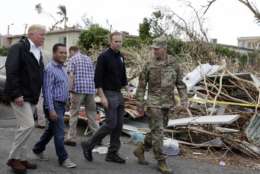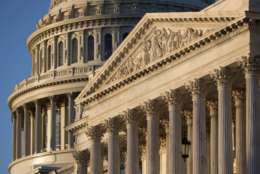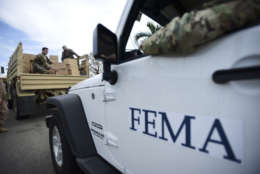Tom Temin Commentary
-
Dementia cases will triple in the coming decades. The expenses and social devastation will be hard to control.
October 24, 2018 -
Federal Drive host Tom Temin reminds everyone that artificial intelligence applications aren't set-and-forget. They require constant tending and training.
October 22, 2018 -
A long running federal conference not only changes venues, it sports a whole new format.
October 16, 2018 -
CPB hasn't rested on its laurels with Global Entry and trying to speed up Customs declarations and passport control.
October 11, 2018 -
Some federal employees regularly undertake hard work against dangerous people and organizations. Federal Drive host Tom Temin highlights the efforts of two such individuals.
September 24, 2018 -
The chaotic blob of Congress has become a little more open thanks to changes at the Congressional Research Service.
September 21, 2018 -
Online services are supposed to be uncomplicated. It's the programmer's job to mask complexity.
September 18, 2018 -
In the aftermath of last year's hurricane triple-whammy, state government needs to realize they're the first responders, not FEMA.
September 13, 2018 -
US strategy in its longest war is shifting. So how come no one in Congress is talking about it?
September 05, 2018 -
Congress is wise to jump onto oversight of two departments' electronic health records projects.
August 30, 2018 -
OMB finds dozens of more obsolete agency management rules and regulations to put through the shredder.
August 28, 2018 -
Would continuous background monitoring have stopped a Reality Winner from accessing, let alone leaking, secret documents?
August 24, 2018 -
FEMA dealing with many lessons learned — on both personnel and emergency response fronts.
August 23, 2018 -
Russian cyber experts appear to be omni-hackers; they're willing to target both Republicans and Democrats. Conservative think tanks are the latest targets.
August 21, 2018 -
Not even a platoon of Evelyn Woods could get through this mountain of classified material every year.
August 17, 2018















